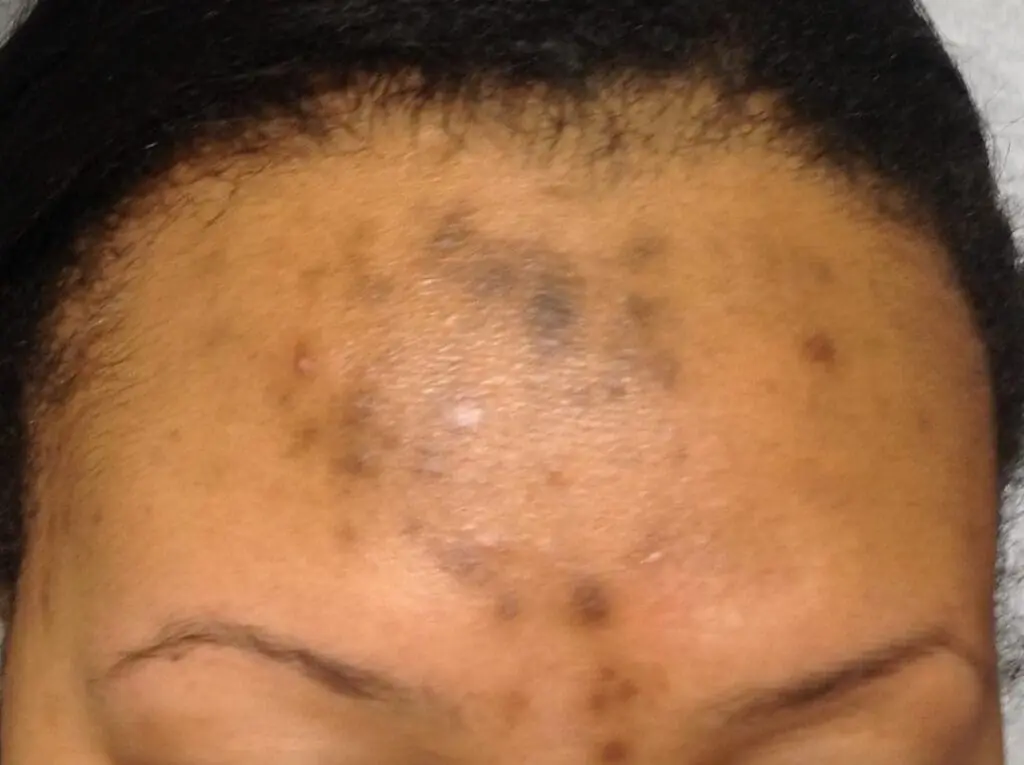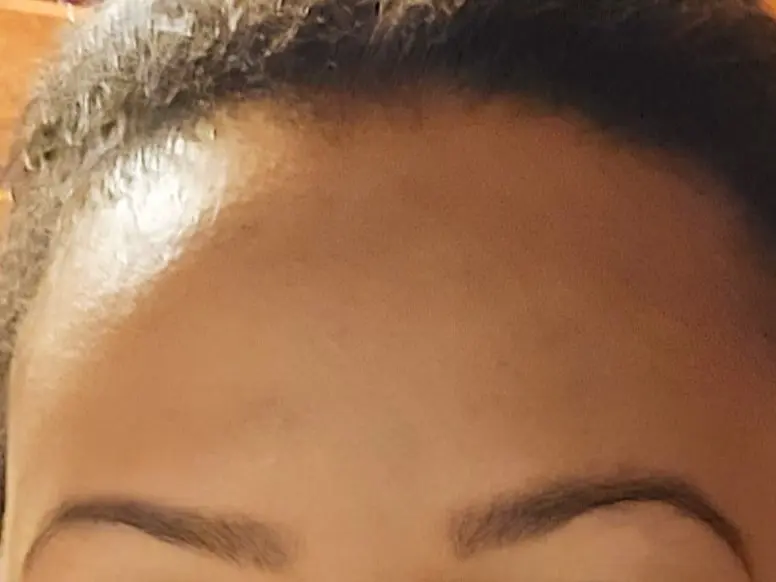Post-inflammatory hyperpigmentation (PIH) can arise on skin that has been irritated or injured. It’s crucial to distinguish PIH from scar formation. Instead, PIH occurs as a result of your skin producing excess pigment, known as melanin, in response to injury or irritation. This can manifest as dark red, tan, brown, or blue-gray patches on the skin. Common triggers include acne, eczema, and infections like impetigo.
Other reported causes encompass:
- Razor burns
- Bug bites
- Infections
- Burns
- Allergic reactions
PIH causes emotional distress
It’s essential to remember that post-inflammatory hyperpigmentation (PIH) is not scar formation and typically fades over time. However, persistent PIH can be socially uncomfortable. The good news is, there are excellent treatments available to expedite the clearance of discoloration. At Profile MD, we offer advanced solutions to address PIH effectively.
Our PIQO4 Laser is a safe and efficient method to break up excess pigmentation, leading to significant improvement in skin tone. In addition to laser treatments, we prescribe Tranexamic Acid (TXA) to further speed up the fading process between sessions.
Post-inflammatory hyperpigmentation (PIH) may not pose a physical threat, but its appearance can undoubtedly lead to emotional distress. Its unsettling presence can significantly impact self-perception and social/emotional functioning, especially in affected groups.
A study retrieved from the National Library of Medicine found that “post-inflammatory hyperpigmentation with acne negatively impacted self-perceptions and social/emotional functioning, especially in groups” (Kavita, Varade, West, Ambrecht, & Guo, 2017). To visualize the effects of PIH, you can view photos in the provided link: PIH Gallery
Who is at risk for this condition?
Post-inflammatory hyperpigmentation (PIH) can affect individuals of all genders and ages, but it is more prevalent in people with darker complexions, particularly those of Hispanic or African backgrounds. While pigmentation tends to lighten over time, some individuals may experience prolonged discoloration. Improvement can be gradual, often taking up to two years for complete fadeout. Fortunately, various remedies exist to accelerate the clearance of hyperpigmentation.
What are the best ways to treat PIH?
To effectively treat post-inflammatory hyperpigmentation (PIH), doctors often recommend over-the-counter (OTC) products containing glycolic acid or niacinamide. These ingredients serve as a good starting point for skin exfoliation and brightening.
For cases requiring stronger treatment, doctors may prescribe alpha hydroxy acid (AHA) solutions. Dr. Ross VanAntwerp from Profile MD recommends the use of the PIQO4 Laser, a safe option for all skin types, to fade persistent hyperpigmentation. This laser breaks up dark skin pigment, although multiple treatments may be necessary depending on the severity of the case. Additionally, Tranexamic Acid, applied between laser sessions, can help reduce discoloration with fewer side effects compared to other treatments. To achieve optimal results with any treatment, it’s important to follow guidelines provided by your healthcare provider.
Steps for best results
To achieve the best results in treating post-inflammatory hyperpigmentation (PIH), it’s important to be mindful of the following considerations:
- Ensure acne is under control before addressing PIH, as active breakouts can exacerbate pigmentation issues.
- Apply a high-quality sunscreen daily to protect your skin from harmful UV rays, as sun exposure can impede the fading process and potentially worsen irritation.
- Monitor your skin’s response to treatment closely, as certain therapies may aggravate your condition rather than improve it. Adjustments may be necessary based on your skin’s reactions.
Profile MD can help
Before beginning treatment, it’s crucial to get acne under control and protect your skin with a high-quality sunscreen. Our experienced aesthetician can recommend medical-grade sunscreens tailored to your needs.
At Profile MD, we understand the importance of personalized care. That’s why we offer FREE skin consultations to address your concerns and answer any questions you may have. Take the first step towards transformation and schedule your consultation today by calling 410-544-4600. Let’s embark on this journey together.
PIH Before and After


